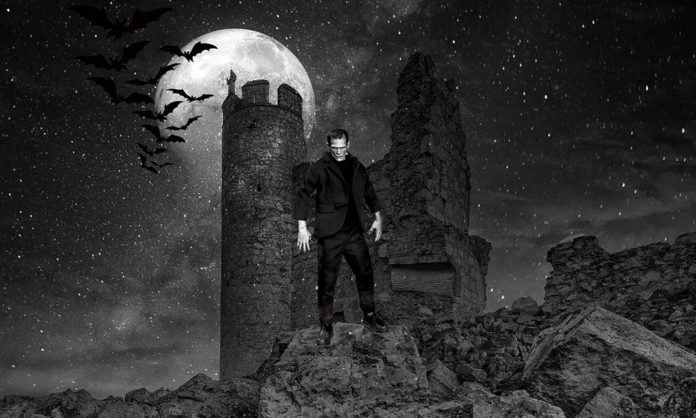
In a new post, Kristen Lamb says we may love or hate horror, but either way, we need it. “Horror is incredibly difficult to write well,” she says. “Guts and gore might work for teenage boys, but to really be able to write something that gets under people’s skin? No simple task.”
While some fiction is purely escapist fun, horror does a lot more. “Many writers (myself included) desire to go far deeper with our fiction, explore wounds and human issues, poke and prod at larger social dilemmas,” Lamb writes. “We wield the narrative form like a scalpel, exposing what is necrotic or diseased so it might be removed and the patient (humanity) cured.”
Horror often reflects the time in which it’s written, as Frankenstein appeared at the dawn of the scientific age and Dracula commented on sex during the prudish Victorian era. The alien invasion films of the mid-20th century were produced during the U.S-Soviet space race, and monster movies arose during the nuclear age. Occult films, slasher movies, zombies – all reflected their environment. Lamb doesn’t think it’s coincidental that zombie movies made a comeback when the internet and social media took off, and the world began to fear a mob mentality.
While some horror stories are laughably melodramatic, others like The Road are considered literature. “When we look to the great speculative fiction, we see the authors are disguising explosive social commentary within narrative so it can be viewed and experienced behind the safety-glass/containment field of story,” Lamb says. “By using story, we writers place the reader into this world then (hopefully) generate empathy that is impossible to create any other way.” Books like The Stepford Wives, Animal Farm, and Brave New World tackled serious real-world issues like the women’s lib movement, the dangers of groupthink, and a culture consumed by hedonism.
Spec fic and horror ask big questions about our culture, Lamb says. “Good horror writers tap into the subconscious angst and gives it a face,” she writes. “What happens when society is allowed to continue to devalue human life? When mobs are handed permission to call the shots? Let’s chat about this after watching The Purge.”
Lamb says the key to capturing the zeitgeist is to go small. “The human mind can’t truly grasp the loss of a billion lives. It doesn’t resonate because it can’t compute,” she says. “Thus the great spec-fic plots make the big small. We tell a small story of one person or a group of people as it plays out on the far larger stage.” Even when you’re not contemplating a big cultural issue, focusing on something deeply personal – and universal – can give your writing the same resonance.
‘In a world where we are overwhelmed with doom and gloom, where any debate on-line easily devolves into ranting, I think spec-fic is more important than ever in human history,” Lamb concludes. “Story is the place where the armor goes off and the heart is exposed and then able to be changed, fixed, remolded, and softened.’











